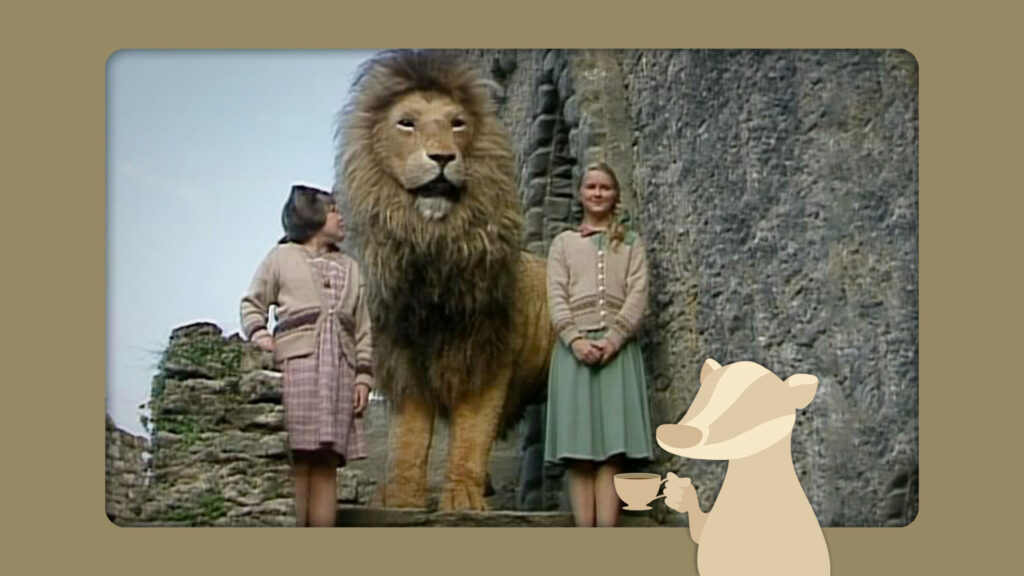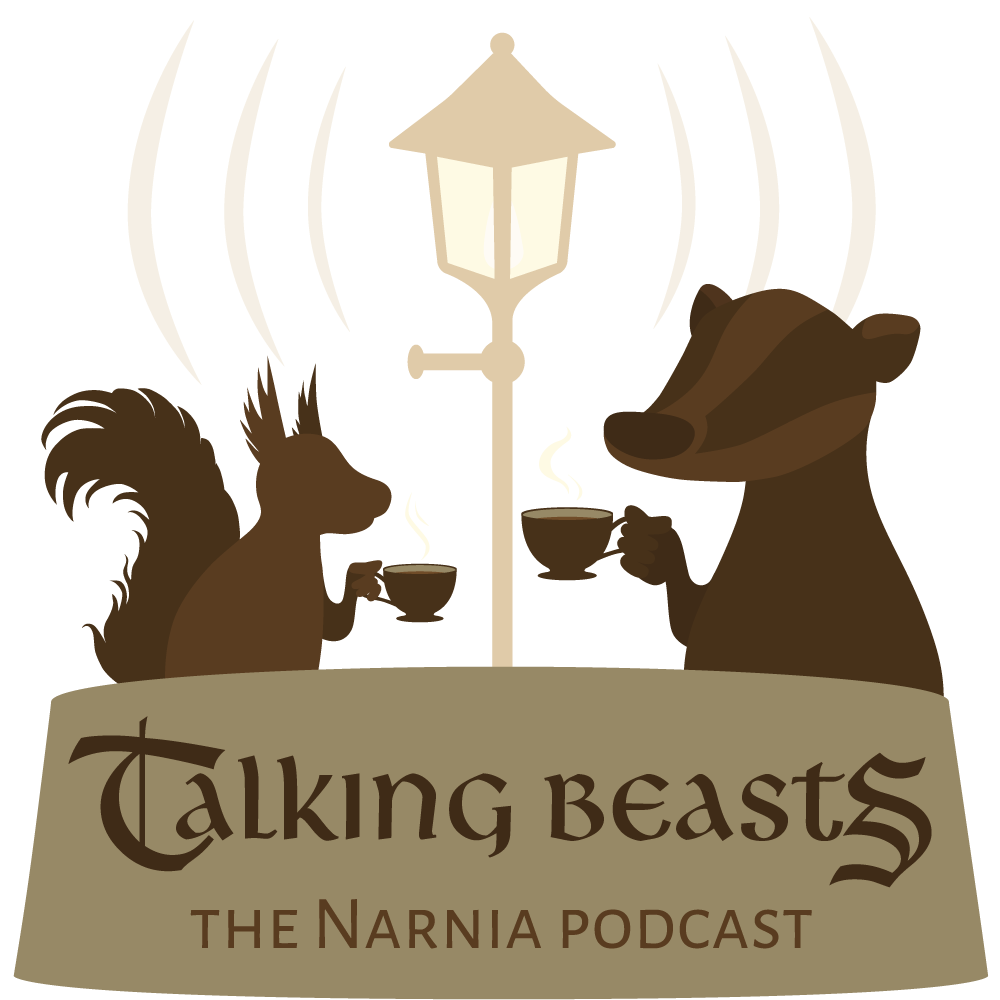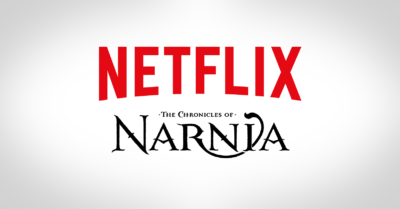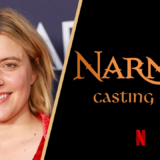Why BBC Changed Aslan’s Resurrection Scene | Talking Beasts

Podcast Discussion
Evidently, neither Walden Media nor BBC was satisfied with C.S. Lewis’s explanation for Aslan’s resurrection. The 2005 movie cut out the “Deeper Magic” completely. The 1988 television serial kept it, but also made a notable addition.
This episode concludes our discussion of BBC’s The Lion, the Witch and the Wardrobe. (Check out the bloopers!)
At the end, the podcasters discuss Douglas Gresham’s recent comments about why The Chronicles of Narnia: The Silver Chair production was abandoned.

Listen:
Podcast: Play in new window | Embed






in the newer movie of The Lion,The WItch,& the Wardrobe somewhere in the middle of that movie they put in deeper magic of the White Witch in the Chronicles of Narnia: The Lion,The Witch,& the Wardrobe.
The 2005 movie had the “Deep Magic,” but removed the “Deeper Magic.”
In the book, there is a Deeper Magic that only Aslan knew about. In the 2005 movie, there is only a Deep Magic that the Witch knew about but interpreted differently.
Director Andrew Adamson said he made this change because it seemed like “a bit of a cheat” that Aslan had knowledge the Witch did not.
Hi Gymfan and Glumpuddle,
Thanks for your really interesting and enjoyable analysis of the BBC adaptation of LWW over the past few episodes of Talking Beasts!
I can understand why overall this version still left you both feeling pretty flat by the end of it — I also definitely wouldn’t introduce anyone to Narnia with this series if they weren’t already a fan and hadn’t read the books. However (and I think I said this in a previous comment), from the point of view of someone who watched these the first time they were ever shown on TV (I was about 8 at the time)… yeah, they were hokey and pretty laughable even then, BUT so were a LOT of adaptations of fantasy stories at the time — unless they had a huge budget and an incredibly skilful production team, which 1980s BBC programmes never did. And seriously, as a kid back then, you just learned to grin (or sometimes outright snigger) and bear it. We honestly had no idea back in the late 1980s that realistic CGI would even one day be POSSIBLE, let alone eventually be effective enough and affordable enough that entire movies could be created using it, as they are all the time now. It simply had not been invented back then!
So yeah, we were definitely laughing at the bad special effects even then, but they came with the territory. It wasn’t an utterly brilliant adaptation of my favourite fantasy series (or, well, four books out of it), but hey, it was what we had. And while the BBC versions were almost TOO faithful to the books to the point of plodding awkwardness at times, well, at least they gave it a pretty good go with the limited budget and limited technology they had. That’s why I can still watch them and, yes, still laugh and groan, but with genuine affection even so.
About the Deeper Magic… I’ve always thought, too, that Aslan’s added comment (that it had “never been put to the test until now”) is meant to increase the tension there and indeed to explain why he was apparently so heavy-hearted as he went to meet his death. If he knew it was all going to turn out OK, why all that sorrow beforehand and the girls comforting him, which of course is probably the most poignant scene in the story? That’s not explained at all in the book, which I think is what both the BBC and Walden felt they needed to address in this scene, either by adding this element of Aslan taking a “risk”, or just dropping the whole Deeper Magic element entirely.
But really — sure, while Narnia isn’t an allegory, I think this whole issue does come down to a theological question in Christianity itself. If Jesus likewise knew that he was going to come back from the dead — and the Gospels have him telling his disciples very clearly beforehand that he’s going to be killed and on the third day he will rise again — then… why the agony in Gethsemane where he is literally sweating blood (according to Luke) and begging God to spare him this ordeal?? Aslan’s “passion” experience in LWW is different, of course, but that’s where the Biblical parallel is, and the questions it raises are similar — and Lewis, like the Gospel writers, doesn’t really give us an explanation, just the sorrow and horror followed by a wonderful, victorious turning-around of everything that seemed to have gone so wrong.
As for why Aslan has to kill the White Witch with a roar… yeah, spot on that there’s not much else this version of him could have done, unfortunately. Here’s a clip from the BBC kids’ programme Blue Peter, “How they made Aslan”: https://www.youtube.com/watch?v=w8zUoEnC3PY — from which you can see, he really is two people in a lion suit, pantomime horse style. In the book, we’re told Aslan “flung himself upon the White Witch” and they “rolled over together but with the Witch underneath”. In BBC Narnia, Aslan’s forelegs are literally the legs of the person who’s holding up his head, and his back and hindquarters are another person bent over. There is physically NO WAY he could even have reared up on his hind legs (sure, maybe the back person could have grabbed the front one’s waist and lifted, but that would only have made it obvious that Aslan’s “forelegs” were nothing like a real lion’s) — let alone “flung himself” on the Witch and “rolled over”, at least not without the costume coming apart and possibly someone getting seriously injured in the process!!
A thought, too, about the Professor at the end — yes, they obviously lifted the script straight from the original book without any thought as to why and how the Professor knew something about Narnia, which is how Lewis originally wrote it. But as far as I know, there was never even a hint that the BBC would do an adaptation of The Magician’s Nephew. So even if the script writers had read all the books, maybe they saw no need to add in any allusions to The Magician’s Nephew if they weren’t planning to film it anyway? (Now I’m wondering how on earth the BBC would have managed Fledge the flying horse… hmmm, maybe better not go there.)
Like you guys, I’m looking forward to finding out what Netflix is going to make of this story and the rest, and I’m hoping against hope they’ll be able to make it visually superb and believable while still remaining faithful enough to the books — I really appreciated the point you made about Narnia needing to be adapted by someone who loves Narnia. Let’s keep hoping and praying!
Many thanks again!
I have to say, I’m glad Gresham backed out. Look how some of the more popular “girl power action movies” are viewed by fans (both men AND women): I have never met a Star Wars fan who loved the Last Jedi, or a Marvel fan who was into Captain Marvel. In fact, the truth is most fans feel they’re butchering their favorite stories for the sake of promoting their message. I’m so, SO grateful that was not done to Narnia.
Now don’t get me wrong: I’m not saying promoting messages in movies/books/whatever is inherently wrong. NARNIA has so much Christian symbolism that people confuse it for an allegory. What I’m saying is, when making a movie or writing a book or whatever, it’s all about the story. The message, however important it may be, takes a back seat. When I was a kid, I didn’t know what symbolism was, or try to compare Narnia to anything, (except other stories), so I didn’t even GET the message until I was much older. But when you shoe-horn a message into a story for the sake of pushing the message, it just doesn’t fit.
And I’m not necessarily against “girl power” either; I think it would be awesome to see a fantasy where a girl starts out as a damsel in distress, but through her adventures she discovers she isn’t powerless. I think even most guys would agree it’s not a bad message – but it’s NOT NARNIA. Write a new, original story revolving around that character – don’t try to make that Jill Pole or Ms. Marvel or someone else whose story is not about that. If anything, the only powerful woman in the Silver Chair is the Lady of the Green Kirtle! 😀
Okay, rant over, thanks for all the great analysis of the BBC version! And Glumpuddle: I TOTALLY agree with your fan theory! In the BBC version of Narnia, the dwarf is absolutely the power behind the throne. 😀
Silver Chair is also about faith isn’t it?
I don’t feel Glumpuddle is being fair to the BBC version. You guys at narniaweb keep talking about being willing to see a lower budget adaptation in the future film. Well when you have less special effects to carry the film, acting techniques are played up, and yes overacting from the white witch. In high budget special effect movies the actors get lazy and are so one dimensional (as in the prequels of Star Wars). This here is acting you see for a children’s film. I always have seen these BBC version as enjoyable.
Well, C. S. Lewis was against books that only appealed to children and not adults. So saying that the acting in this adaptation was “the kind of acting you see for a children’s film” doesn’t sound like a very Narnian argument in its favor if you ask me.
Not that you have to agree with Lewis’ artistic criteria of course. I think it’s OK that some works appeal to some people (like children) and not others. I just want Narnia adaptations to be enjoyable for multiple generations because the books are.
I agree that when you don’t have a lot of awe-inspiring special effects, you should focus on great acting. But IMO the BBC LWW didn’t really do that. The White Witch’s actress was definitely enthusiastic and I applaud her for that. But I can’t say “enthusiastic” is the same thing as good. I do quite enjoy the performances of Mr. Tumnus and Mrs. Macready. But I can’t say the cast on the whole was that great. There were so many weird and uninspired line deliveries.
FWIW, I really enjoyed the miniseries of E. Nesbit’s “Five Children and It” which was from the same era and made by the same production company. (I don’t pay much attention to credits so I couldn’t say how much overlap there was between the crews but it has the same feel and I wouldn’t be surprised if there was a lot.) So while I’m not a fan of BBC LWW, I don’t think all 80s tv serials, including fantasy ones, are bad. I’m not even sure I’d say that this one was bad per se. I’m just kind of “meh” on it.
No one wants to see a Silver Chair movie turned into the girl power of the recent Star War movies.
“Now I’m wondering how on earth the BBC would have managed Fledge the flying horse… hmmm, maybe better not go there.”
They would have likely handled it as they did with the winged horse in LWW. It would have been animated similarly and paired with a voice actor. And people today would be commenting on how crude it looked and how the lips were not well synced to the voice.
For the record, I remain very fond of the BBC Narnia in spite of its shortcomings.
The children were not professional actors. One can’t be too critical of them if they had no training in drama school. As for the witch, she could have been better, but not every scene of hers is all that bad, although most of it is exaggeration and overacting. Her performance was flawed, but I don’t think she was completely bad because she did succeed in being evil . She was good at being cruel (sadistic) to Edmund and Aslan, which was certainly consistent with her character. I would not be too hard on the kids just as I wouldn’t criticize children in an elementary school play for not being professional actors. The deliveries aren’t all bad (the sadness at Aslan’s death worked quite well). The children were just acting like normal kids. The actors in the movies ( Georgie Henley was really good as Lucy) may have had more acting ability, but the movies have shortcomings in story adaptations.
Then why didn’t they hire professional actors? Children who act professionally do exist you know. 😉
I don’t think they added the line about the deeper magic not being tested to up the tension. That wouldn’t have made any sense since we don’t find out about it until after Aslan is alive. It’s not like we’re wondering whether or not the deeper magic will work while he’s dead. My guess is it was added because they felt it was cruel of Aslan not to tell the girls that he wasn’t going to be dead permanently. In Aslan’s defense, it was sort of implied in the book that he didn’t want anyone to know about his sacrifice (at least not until it was over-possibly never.) So that was more the girls’ own fault for following him. Anyway, the line rubs me the wrong way because I don’t see Aslan as someone who gambles. In the book, you get the impression that he’s always in control. (To be fair though this is probably the most vulnerable we see Aslan in the Chronicles of Narnia so you can kind of see where the writer was coming from.)
I’m not a fan of Pickup as Aslan generally but I do like his deliveries in the scene where the resurrected Aslan appears. I thought he sounded a lot more vigorous then than in other scenes.
I love the detail of the fountain starting up during the statues scene! I wish they could have done more with the idea though. It would have been great if vines and moss had also started to grow on the walls. And I wish the courtyard didn’t have grass in it. It would be so much more appropriate for everything to be stony.
I know you like the use of real castles, Larry W, but I found myself wishing they could have made their own so that they’d fit the tone of the story more. Cair Paravel doesn’t look magical at all. It just looks like a regular castle. And the Witch’s House only looks scary in the dark. (Happily, the only scenes it really needs to look scary take place at night.) And I wish the Pevensies’ crowns could have looked cooler. In the books, Lewis mentions that dwarfmade crowns are much more beautiful than normal ones.
Speaking of crowns….this last episode was one of the better ones (I mean this episode of the BBC serial; all the episodes of this season’s podcast have been great) and I want to end on a positive note about it. But I have a bit of pet peeve and I don’t know where to air it besides this comment. These miniseries don’t exactly have breathtaking visuals. Some would say that when watching them, we should ignore the visuals and focus on other things. That makes sense. So why do they keep adding magic to the story, like having the Turkish Delight box magically lift itself onto Edmund’s lap or the crowns lowering onto the characters’ heads by themselves? It makes it hard for me to ignore the dated SFX when the series wants to use it even when they really don’t need to do so.
Anyway, I’ve been rewatching this adaptation in conjunction with the podcast, in case anyone hasn’t picked up on that, and I’m with Glumpuddle in that I’ve grown to appreciate it a lot more but I still don’t actually like it or particularly recommend it. 🙂 I do particularly recommend this series of podcast episodes though. It was about time someone discussed the BBC adaptation in an analytical way. I really like how Glumpuddle and Gymfan point out the
P.S.
Did anyone notice that one of Aslan’s followers was a dragon-chicken hybrid? What’s up with that? LOL.
I mean to write before the P.S. “I really like how Glumpuddle and Gymfan point of the BBC LWW’s strengths but they also engage in some snark. Too much snark would have been meanspirited and shallow. No snark at all would have been a waste.” 😉
Dear Courtenay,
I would like to comment kindly on your question about the suffering of Christ, if I may. Firstly, I think we must keep in mind that, while Aslan’s death and resurrection are fictional, the event they are based on, the death and resurrection of Christ, actually happened, and they happened in a time and context in which everyone understood why Jesus, though knowing that he would rise from the dead, would be in agony before going through what he was about to go through. I think we must remember that the Lord Jesus did not die from lethal injection, but rather, was crucified. I won’t describe what is involved in a crucifiction here, only to say that it was one of the most awful and torturous forms of capital punishment ever invented, and the Romans has refined it even further ino some sort of art form, which was specifically designed to cause the maximus amount of physical and psychological suffering possible. A Jew living in the first century woudl have been all too aware of what it menat to be put to death by crucifiction, thus, that alone accounts for the agony Jesus went through, and why he needed strengthening in order to face it, even though he knew it would not be the end. Secondly, if we add to this the fact that he also knew he was innocent, was dying to bare the consequences of the sins of the entire human race, and that, as God, he had the power to stop everything at any moment, and I think we can understand why he went though this period of deep struggle before facing what was coming, why he asked God if it was possible to not go through it, and why he needed an angel to strengthen him, as Luke tells us, before getting up and going forward with the mission of redemption. I consider that all these things help us understand Jesus’s identification with us as a man, without ceasing to be God in nature, and also his love that motivated him to go through all this in order to pay the penalty for our sin, and provide redemption. Hope this helps some.
As for the scene in LWW, while Lewis had to, in a sense, tone down Aslan’s suffering for obvious reasons, I personally never had a problem with his deep struggle and heaviness of heart during the process, even though he knew what would happen. Remember that the purpose of the stone table was to administer justice to traitors, and the fact that the witch presumptuously decided to use this to her own ends didn’t change that. Thus, Aslan, who wrote the law, was sacrificing himself, as an innocent, in the place of Edmund, as well as all Narnia. For this reason, never even thought of this as a problem, but only a demonstration of the horror of the moment, and also of his love.
P.S. Oops. Sorry for the typos. 🙂
The dragon-chicken hybrid thing is called a cockatrice. I thought it was kind of weird, but it’s an actual mythical creature. (Go figure!)
A “note” on the music: I was watching the BBC Silver Chair the other day with my brother. He said he thought the music would work great for a Charles Dickens adaptation, not a Narnia adaptation. I rather agree. (Geoffrey Burgon actually has scored some BBC Charles Dickens series; the music sounds eerily similar to the Narnia soundtracks he wrote.)
Overall, I agree with Glumpuddle. The series is interesting, and gets some things right, but on the whole it’s a bad adaptation that I would be embarrassed to show my friends as an introduction to Narnia. Even with the level of technology, even with a limited budget, it still could have been a lot better.
It sure is! There’s plenty of Christian symbolism there. The woman who tempts Prince Rillian to come with her, who rules an underground kingdom, and who turns into a snake, makes her an obvious devil figure, and Jill’s following (or not) of Aslan’s signs remind me very much of a Christian’s following (or not) of the Bible. It’s not quite as blatant as LWW, but faith is definitely an important theme.
I don’t think it would have made much difference anyway. They were okay as child actors even if they weren’t outstanding. I wonder if there is much point in criticizing the BBC’s decision so many years later. It doesn’t seem very nice or productive. I saw interviews on videos of the cast on YouTube as adults and I thought they were interesting people. I don’t think they did that badly as children in the series. Does something have to be perfect in order for us to like it?
Well, if we shouldn’t criticize it because it’s so old, doesn’t that mean we shouldn’t praise it either? I don’t really see why we should watch something if we can’t praise or criticize it. LOL.
I guess the new technology would have been an advantage in showing the beauty of the castles and the surrounding landscape. But they didn’t have the budget or the technology at that time. The building and sets that they made for the series were not all that bad either, considering the budget. I found the simplicity kind of intriguing, although I wished that they had more money.
It would be interesting if they did something with BBC Narnia like they did with the old classic Dr. Who in a new blu-ray collection. Maybe this would improve the video quality quite a bit if they found better copies of the originals. I love classic Dr. Who as much as BBC Narnia because it was made much in the same way (very old fashioned and vintage). I doubt if they would ever do it, but a remastering of the video might not be a bad idea. 🙂
I kind of hesitate to make this comment because I’ve said a lot of negative things about the BBC miniseries and I don’t want to come across like I have an axe to grind against it. But this isn’t so much describing a negative as explaining why things aren’t positive for me. I’d like to write about some of the reasons I’ve heard some fans have for preferring the BBC LWW to the Walden movie and why they don’t resonate with me. I think the reasons why adaptations appeal to some fans and not to others are interesting. This comment is really more about that than about the adaptations themselves.
REASON 1: The BBC adaptation has a storybook feel unlike the Walden which is trying to make Narnia epic.
I think where these fans and I part ways is that I do see Narnia as epic. Or at least I don’t think epic-ness is opposed to the spirit of Narnia. The Magician’s Nephew and The Last Battle showcase the creation and destruction of an entire world. The Voyage of the Dawn Treader takes us to the end of a world. The Horse and his Boy takes place in three countries. I know that The Lion, the Witch and the Wardrobe, which could accurately be described as storybook-like, is the crowd pleaser of The Chronicles of Narnia but personally I’d rank it with Prince Caspian. (Actually, in some ways I think PC is superior. In other ways, LWW is superior. I find it hard to rank the Narnia books.) So for some fans staying true to LWW is the most important thing while for me staying true to Narnia in general is the most important. Chase scenes, detailed battles and angsty protagonists may be foreign to LWW but I think the record will show that they’re characteristic of The Silver Chair, HHB and The Last Battle.
REASON 2: The BBC LWW stays truer to the dialogue than the Walden LWW.
I agree with this theoretically. I can definitely understand this with the really quotable characters, like the Beavers, Professor Kirke and Aslan. But I don’t find the Pevensies that quotable in the book. That’s not to say their dialogue isn’t great. It is. But it’s great in that it sounds like real people talking and because there are so many different real people in the world, you can have them say many different things while still conveying the same effect. As long as the broad personalities are the same, I don’t mind changing the Pevensies’ dialogue that much. (As for the quotable characters, well, my enjoyment of their dialogue was somewhat undermined by other things. Reading my comments should give you some idea of them.)
REASON 3: The BBC does a better job of showing the White Witch’s fear of Aslan.
I agree with this but only to a limited extent. This serial contains more dialogue that describes the Witch as scared of Aslan. But I don’t get the feeling from the actress’s performance that she’s particularly scared of him (except for the end of course.) Her line deliveries aren’t different when she speaks to him than any of her deliveries. Neither are her facial expressions. And like I commented elsewhere, she doesn’t start out the sacrifice scene being worried and gradually grow more confident. The BBC LWW may be better than the Walden in this aspect but I wouldn’t say it does it as well as the book.
I never really understood the deeper magic bit. I feel like I always wanted to draw some kind of allegory or parallel between the deep/deeper magic and a point CS Lewis wanted to make about Christ’s resurrection, perhaps. I mean.. how DOES magic work in Narnia? What IS magic per say, and what rules or laws is magic bound by in this world? That’s something Lewis never seemed to delve into. Perhaps it was never that essential. Lewis just needed SOME kind of explanation for Aslan’s resurrection. Why not be an ancient incantation over a ceremonial stone table? No more no less than that. Ancient random spell, clever Aslan.
I have really enjoyed the podcast episodes going over the BBC LWW series. I have never watched the BBC show myself. I feel like this is a fun, vicarious way to experience them. Will you be covering Prince Caspian, VDT and Silver Chair as well?
Thanks for the comment, Timothy! 🙂
I think the issues with BBC have more to do with creative decisions than the budget. “Metropolis,” a silent film released 60 years before BBC Narnia, remains stunning to behold (far more impressive than most blockbusters released these days). “Wizard of Oz”, which released 50 years before BBC Narnia, still looks fantastic to me. Mostly because the filmmakers chose to embrace the surreal storybook look. BBC, on the other hand, seemed to be trying to fight it. That was a poor creative decision, in my opinion.
Gymfan and I mainly focused on how we personally felt about this series. How children might feel might be a topic for another discussion.
Some will argue that the budget made it impossible for BBC to make a good product. But if so, that doesn’t change my reaction to it. A chef’s budget doesn’t affect my enjoyment of a dish they have created. Regardless of their budget, either I am going to like the taste or I won’t.
I have not seen the BBC series in many years. I was not impressed. In my opinion, the only actor that was any good was the actress that played Jill. The Walden Lucy was so very much better than the BBC Lucy. The whole Walden cast was much, much better. I found it hard to watch some parts of the BBC series, so amateurish. If I had seen the BBC series first I would probably not be a huge fan of Narnia that I am now. I see the BBC series as a curiosity, nothing more.
Glumpuddle, thank you for filling us in about the Silver Chair movie. I think that the book is completely about Jill finding Aslan, Grace and herself. She becomes one of the most important characters in the Last Battle many years after The Silver Chair. A much better candidate for Female Empowerment is the Last Battle not The Silver Chair. That would corrupt the Last Battle instead of The Silver Chair then. I wish that Hollywood would just appreciate some excellent books in the Narnia series, The stories speak for themselves.
Gymfan, I am a big fan of WAG also.
Great podcast.
I believe the deep magic corresponds to the Law (in Christian theology.) It’s hard to name a specific equivalent to the deeper magic.
Hello guys. Great episode!
I Just finished watching BBC’s version of The Lion The Witch and The Wardrobe for the First time and I coudn’t agree more with you: theese are not for the average viewer.
I’m now halfway through Voyage Of The Dawn Treader and my wife, who bravely joined me in this quest, is begging to quit!
I do think tho it is interesting and fun to watch, as Glumpuddle put, out of fan curiosity.
I thought Tom Baker was really good as Puddleglum. He was certainly not amateurish. I believe he was as good as he was as Dr. Who. Camilla Power was excellent as Jill too. The Silver Chair was probably the best of the Narnia BBC series in its acting and presentation. I really don’t care if it was made on a small budget. The story adaptation was quite good.
Tom Baker was really good in The Silver Chair. Why would anyone be embarrassed to show his acting to someone else? I think his role as Puddleglum compares well with his performance as Dr. Who. Of course the series could have been better, but as it was it wasn’t all that bad. Geoffrey Burgon’s music worked very well in making the production have more of a classical feeling. I liked his music for the BBC Dickens too and I own a number of those miniseries on DVD. There is a difference in people’s tastes, but that music is something that I really like. It made something which isn’t perfect a lot better and much more to my taste so why shouldn’t I like it?
I agree that The Silver Chair was the best of the BBC adaptations. For me the LWW and the PC adaptations were hard to watch. To each their own.
Didn’t like BBC series form past couple of months now. This is pretty new new to me.
I have really enjoyed this journey through BBC’s adaptation. I grew up watching this as one complete movie on VHS and watched it over and over again. I did not know until a few months back when it was discussed on the podcast that it was originally in episodes. I remember, as a kid, that at one part in the beavers house, the music always really seemed out of place, but now it makes sense as that is likely one spot where an episode ended.
Something that is really strange though, is that the edition of the movie I always watched as a kid did not have the beach scene at the end of the movie. It cut right from the Coronation scene to Tumnus writing and the 4 Adults going back into our world. I had to find the clip on YouTube when they started discussing it.
This is, I think, the one thing that the 1979 cartoon (which was my first exposure to Narnia when my 3rd grade teachers showed it to us before Christmas break) got right more than any other on screen version of this book. It’s the only film/TV version which has Aslan telling of the ‘deeper magic from before the dawn of time’ and showing the knowledge which Aslan had about the laws which go back to before the beginning of Narnia. It’s truer to the books than the BBC version showing Aslan not having been sure if his sacrifice would work or the Walden version stating that the deep magic is interpreted differently. I can understand why, as Glumpuddle and Gymfan discuss, the BBC miniseries makers wanted to create more tension and drama by stating that Aslan was taking a huge gamble, or why in the 2005 Walden version they chose to shorten the explanation and get back to the battle. However, given who Aslan is and that he is the creator of the world this event takes place in, it makes more sense to me that he would be certain the deeper magic would work, and I love how the animated version adds drama to this by showing the stars and constellations before the dawn of time to underscore what a powerful moment this resurrection and return was and is. On the whole I suppose we ought to be glad that there are three versions of the story: a cartoon that captivated me as a child and got Aslan right even if the animation left something to be desired, a miniseries that stayed close to the book but lacked big budget production values, and a blockbuster that takes more liberties but brings the scenes to life in a way no one else had.